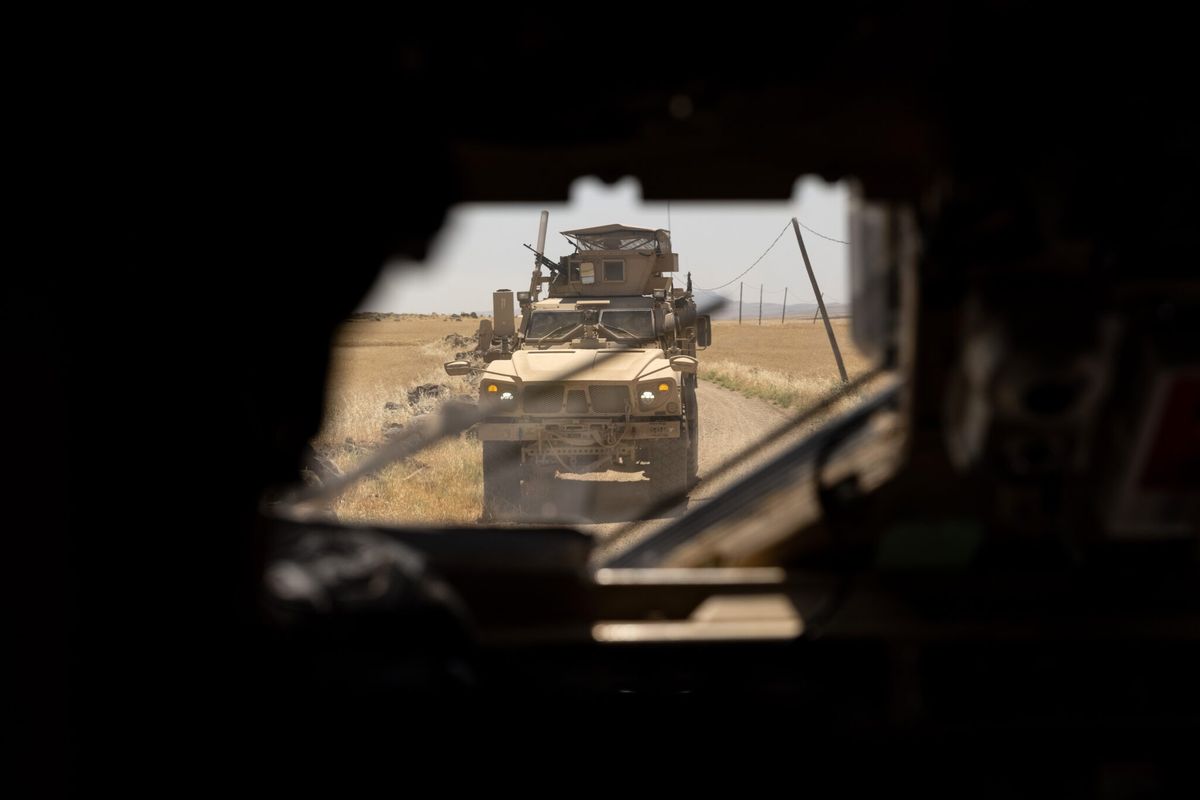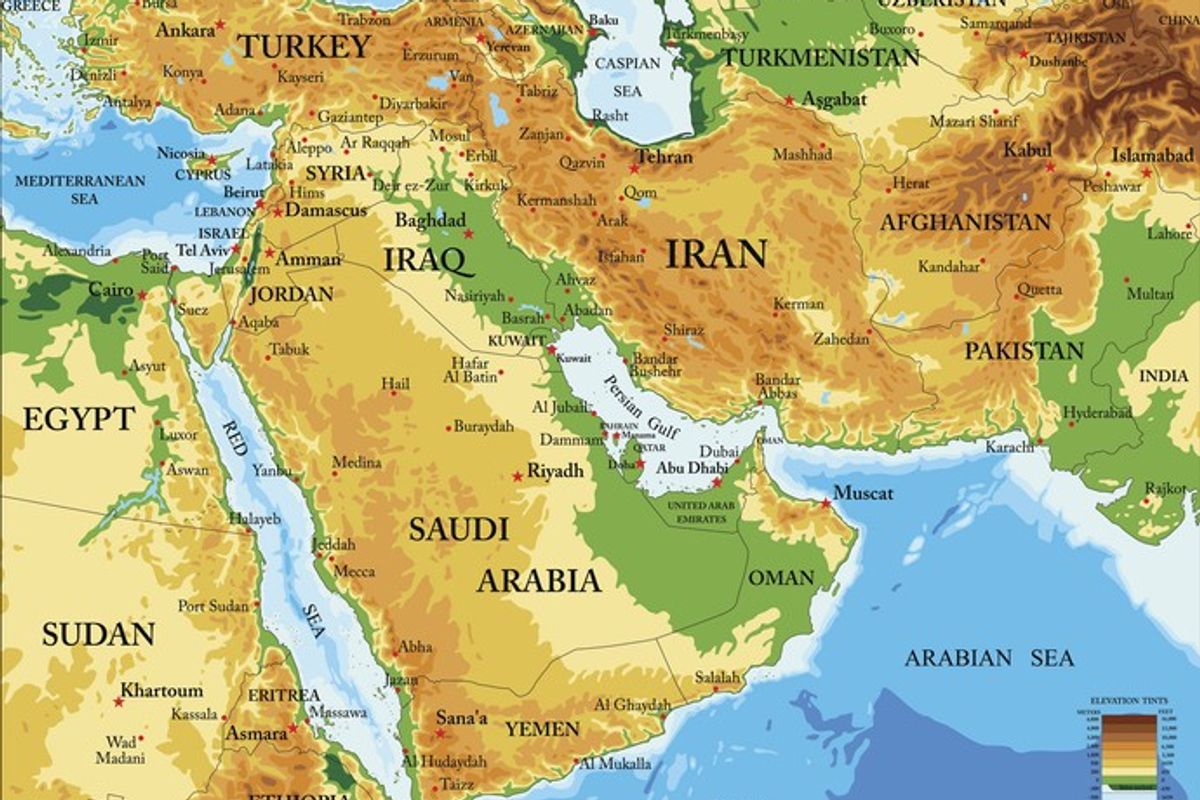MOSUL, IRAQ — Ahmed Salam received a printed citation signed by an Islamic State fighter for shaving his beard and wearing tight-fitting, Western-style clothes.
Considering how others were treated for similar infractions under the extremist group’s rule in Mosul, Iraq, Salam got off extremely light.
“If Daesh (what Iraqis call the Islamic State) saw men without a beard or pants like mine, they’d usually whip them,” he says, while recalling the previous two years during which his eastern Mosul neighborhood was under ISIS’ hardline control.
It’s been a little more than two weeks since the Islamic State was driven from Mosul’s Arbajiyah neighborhood. The evidence of their violent reign is everywhere. Homes pock-marked with bullet holes and partially collapsed from mortar fire and car bombs line the streets. Large piles of rubble are all that's left of those homes completely destroyed.
Two Islamic State fighters killed during the fighting in the neighborhood days earlier remain under a sheet. Apparently no one is willing to claim them or move the bodies.
Black smoke from burning tires fills the skies around Arbajiyah. The Islamic State starts the fires to keep their movement on the ground hidden from commercially purchased surveillance drones used by Iraqi forces.
The fighting continues close by; gunfire and mortar rounds can be heard at regular intervals. The ongoing fight to retake Mosul is just blocks away, where casualties have been heavy on both sides and among the civilians caught in the middle.
However, the recent reprieve from Islamic State rule in Arbajiyah is evident, according to locals during our recent, exclusive tour of the neighborhood now under the watch of the Iraq’s elite Special Operations Forces (ISOF).
Women can walk the streets without the accompaniment of a man, which was mandatory when the Islamic State was here. Children set up a sidewalk shop selling juice boxes and other treats.
When the Islamic State was in control of Arbajiyah, living conditions were extremely difficult. Salam, 27 and a carpenter by trade, says he didn’t work for two years. Food was scare, as were other basic necessities.
Others from the neighborhood agree.
“There was no food, no jobs, no medicine,” says 60-year-old Samir Hashim. “Everything was forbidden.”
The Islamic State maintained its stranglehold on the neighborhood by living among the people they were oppressing.
ISOF soldier Mahmoud Ali shows us a home commandeered by Islamic State fighters as a base of operations here in Arbajiyah.
Walking through the home surrounded by a high wall, he points out the room where the fighters slept. A dozen dirty blankets and pillows cover the floor. In another room, are numerous satellite TV boxes and dishes that the Islamic State confiscated from locals.
Information into Mosul was limited by their crackdown. Only those who didn’t surrender all their mobile phones or hid other digital devices were able to stay connected.
Doing so was a dangerous proposition, however. “If they (the Islamic State), caught you with phone, they’d execute you,” said Hashim.
The Islamic State fighters also had other means of controlling Arbajiyah in addition to its crackdown on technology and severe punishments.
Outside the rooms, in a small courtyard where the fighters cooked their meals, are piles of small metal spikes welded together that the extremist fighters would strew across roads to control the flow of vehicles, part of their effort to maintain a siege-like hold of this neighborhood.
However, since their departure earlier this month, movement has opened up a little in Arbajiyah. Cars can come in and out, but they are checked by ISOF. Still, there is little movement in and out.
Most of the vehicle traffic is ISOF’s up-armored vehicles, those left behind when U.S. forces redeployed from Iraq years earlier. They race up and down Arbajiyah’s narrow dirt roads responding to calls for help in the ongoing fight just blocks away.
Despite the close proximity of the fighting nearby, the security forces and locals are cautiously optimistic, for the time being.
“This area is safe right now,” says Ali, though admits the security bubble they’ve established doesn't extend very far. Just yards away from ISOF’s makeshift headquarters in Arbajiyah, he exercises caution when peering around the corner into a larger thoroughfare. He warns ISIS snipers are active in the area and that crossing the street on foot is still dangerous.
There are also suspicions that some of the Islamic State fighters that weren’t killed or driven away in the recent fight to retake the area simply blended into the local populace.
When a group of locals line up outside the ISOF headquarters in Arbajiyah for free medicine, some of the adult males are checked to make sure they aren’t carrying weapons or wearing explosive devices strapped to their bodies.
The special forces keep a watch as dozens of people, some carrying small, sickly children come looking for medicine.
“See all these men here?” says one soldier pointing to several men waiting in line for medicine. “They’re all Daesh.”
Carmen Gentile has covered the wars in Afghanistan and Iraq, as well as other conflicts. His work has also taken him to West Africa, Latin America, Southeast Asia and elsewhere. Carmen's recent reporting has been from Iraq and the surrounding area.












